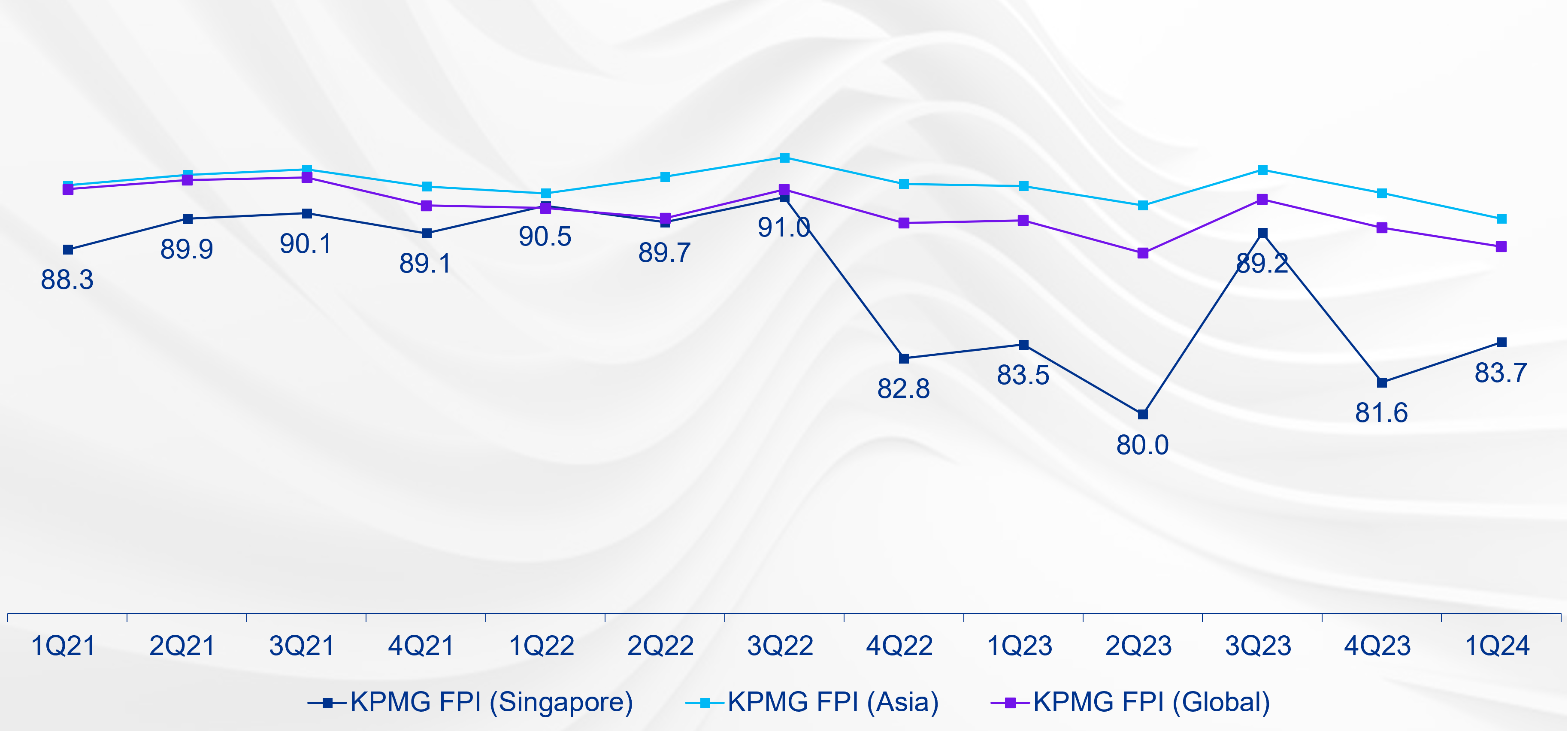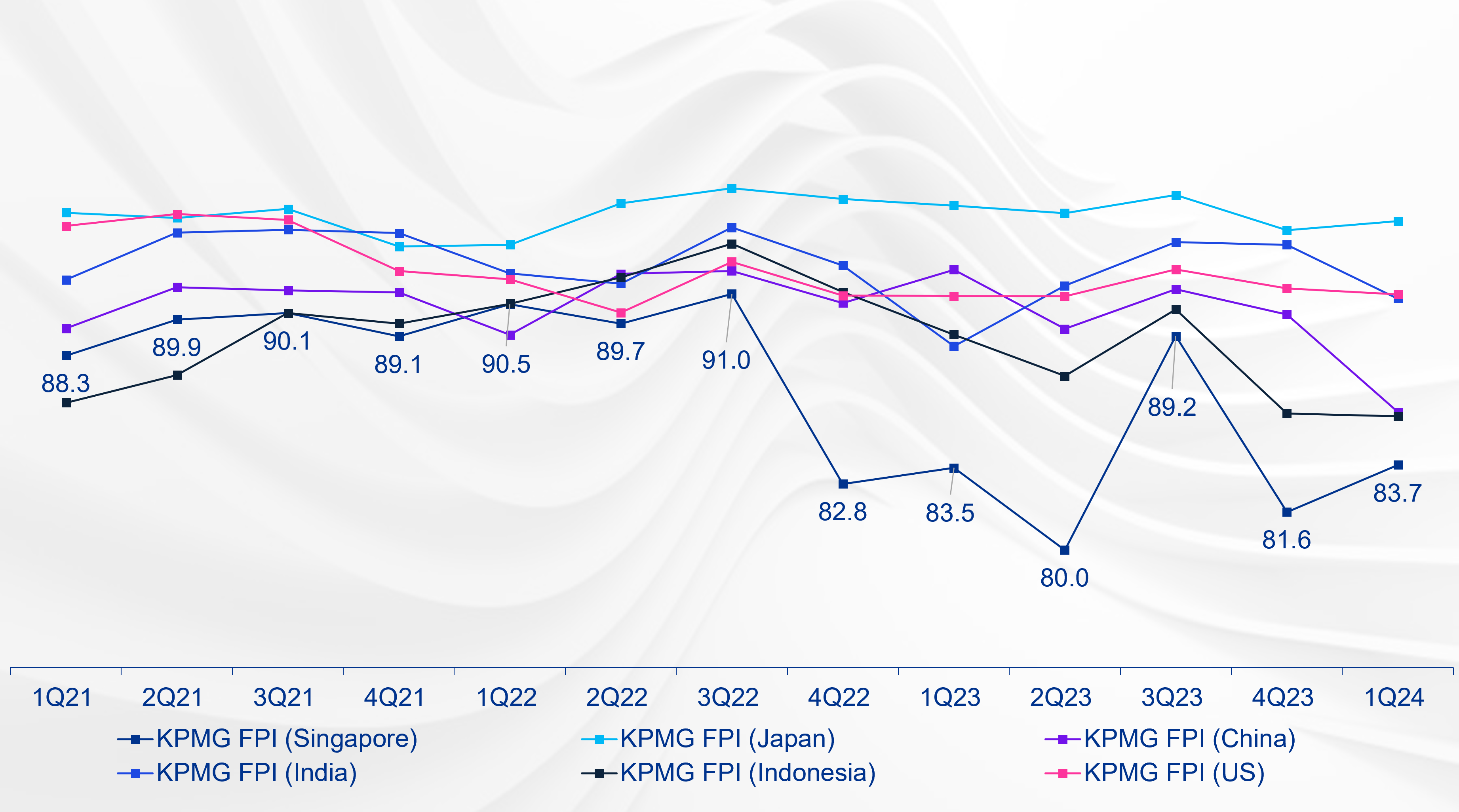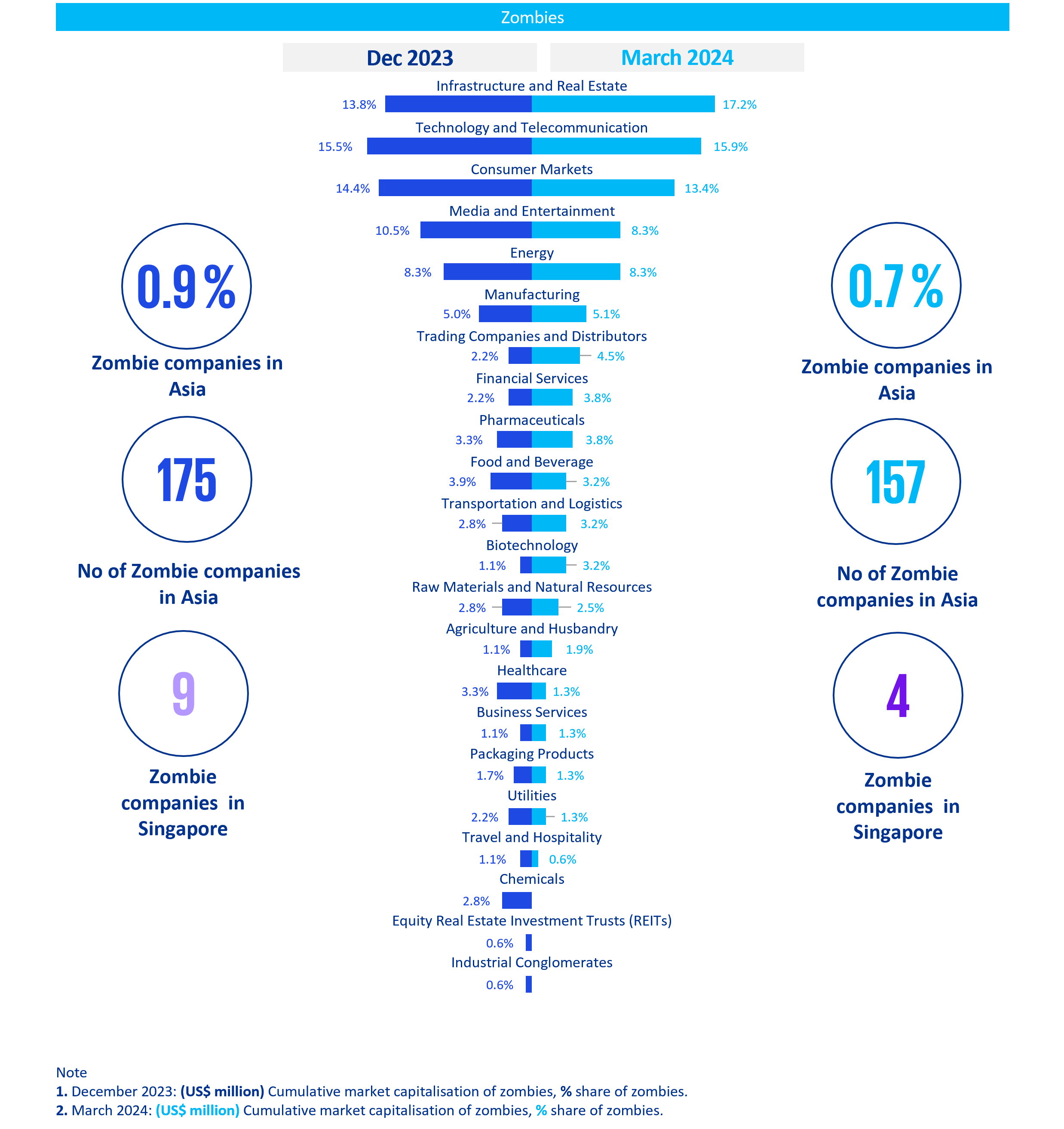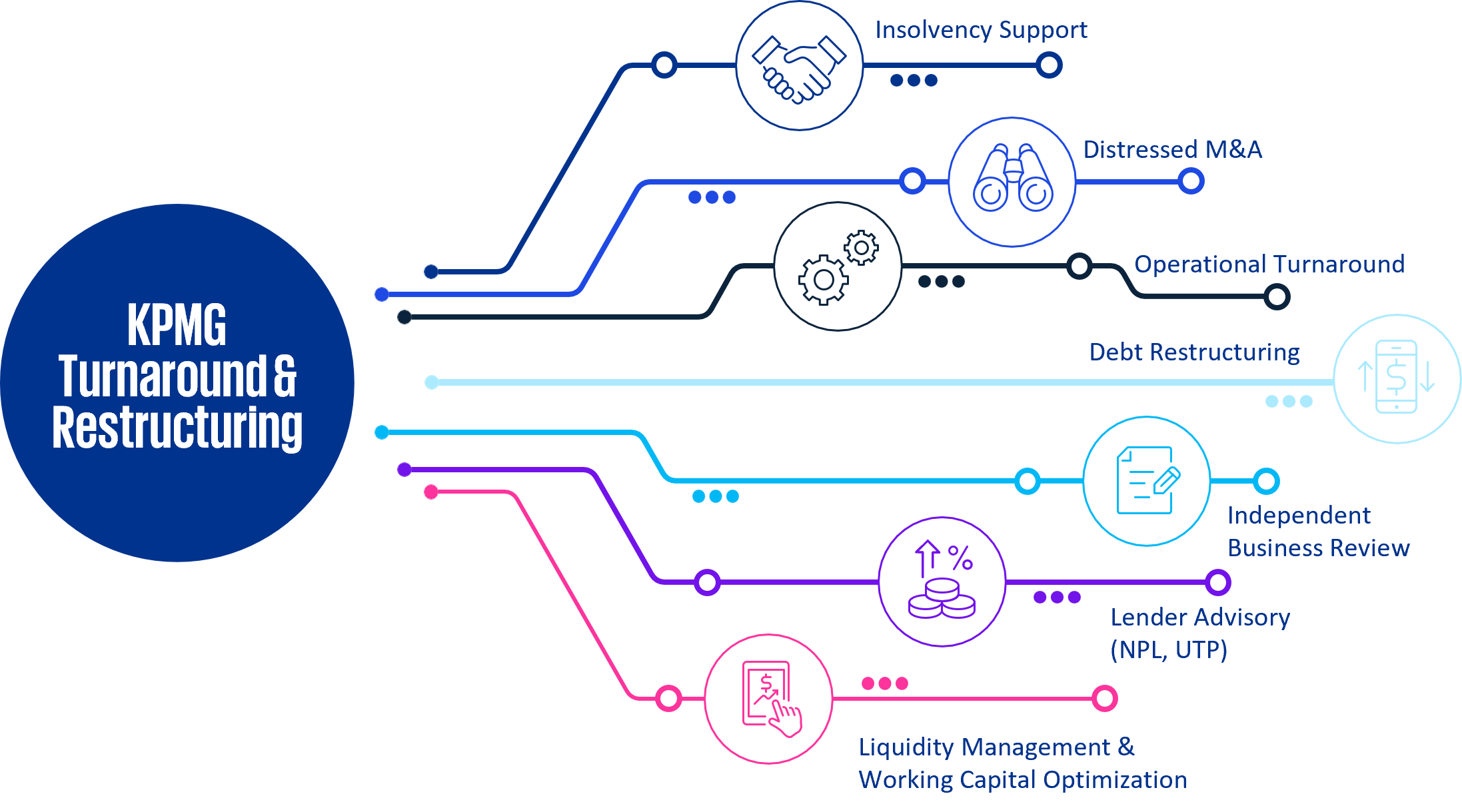We are pleased to share with you the latest edition of our quarterly KPMG Financial Performance Index (FPI) publication. This publication provides insights into the changing state of corporate health across all companies listed in Singapore across all sectors, following the end of the reporting season for the three months to March 2024. KPMG FPI data is refreshed on a quarterly basis.
Singapore's financial corporate health improved slightly from 81.6 to 83.7 in FPI scores between December 2023 and March 2024. Out of 76 subsectors in 23 sectors, some businesses saw a big increase in KPMG FPI index by the end of March 2024: Trading Companies and Distributors rose by 44.6% and Business Services by 33.5%. However, Media & Entertainment and Infrastructure & Real Estate sectors dropped by 9.9% and 7.5% respectively.









